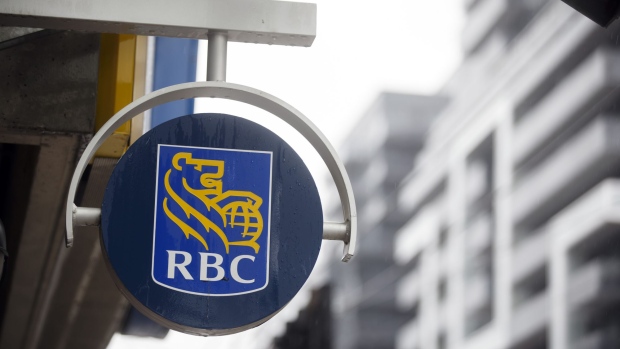Feb 28, 2024
The Daily Chase: Big bank earnings parade continues
, BNN Bloomberg

Here are five things you need to know this morning:
RBC results: The earnings parade at Canada’s big banks continues today, with Royal Bank revealing quarterly numbers that mostly surpassed expectations. At Canada’s biggest lender, a stronger-than-expected performance from its capital markets and wealth management units was enough to offset an uptick in loan-loss provisions and higher costs overall. Adjusted earnings at Canada’s biggest company came in at $2.85 per share. That was higher than the $2.80 that analysts were expecting, although that was six per cent lower than the figure for the same quarter last year. Just as they did at Scotia and BMO on Monday, loan-loss provisions at RBC ticked higher to $813 million. That was higher than analysts were expecting, as well as an uptick from $720 million last quarter and $542 million a year ago. The bank also gave an update on its takeover of HSBC Canada. After numerous delays, the deal has obtained all regulatory approvals required and is set to be finalized next month. And while RBC has trumpeted the cost savings and synergies it will enjoy from the takeover, the costs of those benefits are creeping up. In its earnings release, the bank says that as of the end of January, it has racked up $600 million in integration and transaction costs for the deal. It anticipates another $900 million to come, which will bring those costs to $1.5 billion — higher than the $1 billion initially forecast. And that doesn’t include the deal’s actual price tag of $13.5 billion.
TMX costs rise another 10%: Another day, another multi-billion-dollar cost overrun for the TMX pipeline. According to paperwork filed with the Canada Energy Regulator on Monday, the cost of the massive pipeline project to bring Canadian crude oil from Edmonton to export terminals in Vancouver has ballooned by another $3 billion. The price tag now sits at just over $34 billion, an increase of 10 per cent from the last estimate in May, and a massive escalation for the project which was pegged at about $5 billion when it was first envisioned in 2013. It’s even more than double the projected cost when the government took over the project a few years later. The timeline for the pipeline to actually start transporting oil is still on track to happen some time this quarter, but for a project that has been plagued by delays and cost overruns for its entire existence, another $3 billion is just par for the course.
Apple scraps its car plans: After a decade of planning and billions in sunk costs, Apple has quietly scrapped its plans to build its own self-driving autonomous car, Bloomberg reports. The move came as a surprise to the more than 2,000 people who’ve been working on the project internally for several years, most of whom will be moved over to the company’s generative A.I. unit instead. The idea that the company which revolutionized the portable electronic industry might turn its focus to the automotive space has been a tantalizing one for years, so it’s telling that a company with such big influence — and a US$162 billion cash pile — has decided it’s not worth the cost or effort. When the news came out late Tuesday, in his typical understated fashion, Tesla CEO Elon Musk celebrated the decision, publishing a saluting emoji and a cigarette on his X social media platform. It’s not hard to see why Musk likes the move, since the idea of an army of autonomous electric vehicles traversing the country 24/7 has been a major part of the sky high valuation of the electric car company he heads up. With Apple giving up on the idea, the highway is wide open for Tesla to plow ahead on that pipe dream.
Bumble stumble: Shares in dating app company Bumble Inc. are on my radar on Wednesday after the Texas-based company announced it would be shedding about one third of its workforce due to sluggish demand. The company has just shy of 1,000 employees globally at the moment, and in a regulatory filing Tuesday announced it would be cutting roughly 350 jobs as part of a cost-cutting process. Revenues at the female-focused dating app have grown steadily every quarter since the company went public in early 2021, but that trend reversed this past quarter, where revenues fell from US$275 million to $273 million, missing expectations. Even worse, the company forecasts revenue for the next quarter could be as low as $262 million. Investors are swiping left on the shares as a result, down 10 per cent at one point in premarket trading.
Let them eat corn flakes: After an interview that Marie Antoinette would be proud of, the CEO of Kellogg’s is coming under fire for his comments that consumers should consider eating cereal for dinner as a solution for the current sky-high cost of food. In an interview with CNBC, Gary Pilnick trumpeted the company’s current “Give Chicken the Night Off” ad campaign built around getting consumers to eat cereal for meals that aren’t just breakfast. The backlash has been swift, with the Extremely Online crowd lampooning the company’s marketing spin as being out of touch. Pilnick took home more than US$4 million in total compensation last year, and has been criticized for the attempt at suggesting the company’s stable of cereal brands like Corn Flakes and Raisin Bran are a legitimate option for nourishment. According to regulatory filings, Kellogg’s raised prices by 12 per cent in the past year. That’s more than twice the 5.4 per cent that the cereal basket of Statistics Canada’s consumer price index rose by in the 12 months of 2023. There’s been no word yet on whether or not the company has tried to pin those price hikes on higher input costs for Froot or bottlenecks in the complicated Loop supply chain.